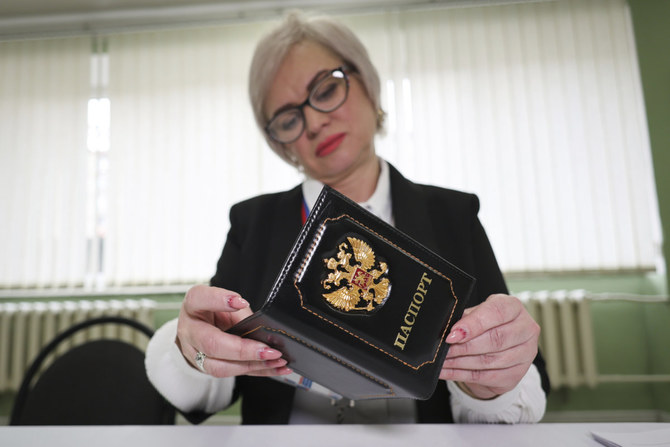
Like the Soviet Union, post-communist Russia maintains a policy of fishing in the troubled waters of the Eastern Mediterranean for both geopolitical and economic gain. This has now led the West’s historical rival to come out as a peacemaker in an attempt to defuse the tension between Turkey and Greece.
After months of attempts by the EU, led by Germany, failed to bear fruit, Russia this week stepped into the fray and said it is ready to mediate between the conflicting parties. Foreign Minister Sergey Lavrov on Tuesday met with Cypriot leader Nicos Anastasiades and afterward said that Moscow is monitoring the situation in the region and would help start a “genuine dialogue” with all parties that would generate “mutually acceptable solutions.”
Can Russia play peacemaker and lead a genuine dialogue between two NATO member states? A brief evaluation of the Russian role in the region and its relations with both Ankara and Athens could help answer this question.
Between 1960 and 1990, the Cyprus problem hampered Turkey’s relations with the West, but it also led to closer ties with the Soviet Union. Although the Cyprus issue was not a determinant in relations, the Soviets’ reaction to the Turkish military intervention on the island is noteworthy. Moscow kept a rather ambivalent attitude and initially supported the move, before calling for an international resolution to the issue.
Washington’s attitude toward Turkey caused further improvements in relations between Ankara and Moscow. President Lyndon Johnson’s letter and the US’ arms embargo on Turkey played a fundamental role in the Soviet approach. Needless to say, the main aim of the Soviet Union during the Cyprus crisis was to maintain good relations with Ankara and to exploit the Turkish-American differences. Another goal was to carve out a role in any settlement of the Cyprus issue.
Experts foresee that Moscow’s attempts could complicate the process led by the Europeans.
Sinem Cengiz
Today’s Russia also tries to have a role in any resolution of the Eastern Mediterranean dispute at a time when Ankara and Washington are at odds with each other on several issues. Russia, which is involved in energy projects across the region, has significantly strengthened its military, political and economic ties with Turkey in recent years. Moscow and Ankara are coordinating closely on their military presence in Syria, while Turkey has purchased Russia’s advanced S-400 missile defense system and broken ground on a Russian-built nuclear power plant on its southern coast. However, experts who follow the Eastern Mediterranean theater foresee that Moscow’s attempts could complicate the European-led process at a time when the US is embroiled in an election campaign that offers Russia fertile ground.
Amid escalating tensions between NATO members Turkey and Greece over the rights to search for energy resources in the region, Ankara last week announced that Russia will hold live-fire naval exercises in the Eastern Mediterranean. A navigational notice said the Russian exercises will take place this month in areas where Turkish seismic research vessels are operating. The Turkish announcement came after the US said it was partially lifting a 33-year-old arms embargo against Cyprus. Russia maintains a sizable naval presence in the area and regularly conducts naval maneuvers, but the announcement of live-fire drills seems to be a significant message that Moscow is determined to remain a major regional player whose influence won’t be weakened by the US’ embargo move.
Greek-Russian relations should also be added to this equation. Ties between Athens and Moscow have deteriorated in recent years, following Greece’s 2018 decision to expel two Russian diplomats and ban the entry of two others. Athens was also upset by the Russian stance on Turkey’s conversion of the Hagia Sophia into a mosque. Kremlin spokesman Dmitry Peskov, in a radio interview, said that the decision wouldn"t harm relations with Russia and that it was an internal affair, just as Turkish President Recep Tayyip Erdogan, rejecting international criticism, had contended. Needless to say, the new power balances in the wider region are another contributing factor to the escalation of tensions between Moscow and Athens. Turkish-Russian rapprochement and their joint actions in the Syrian war have raised eyebrows in Athens.
NATO’s attempts to defuse the tension between Turkey and Greece — two traditional arch-foes within the alliance — are also getting complicated. A meeting between Turkish and Greek military delegations to discuss methods for reducing the risk of incidents in the Eastern Mediterranean was initially planned for Tuesday at NATO headquarters in Brussels, but it was rescheduled at the last minute.
Given the failure of EU-led attempts and the US election rush, Russia seems set to take advantage of the situation and strengthen its influence in the muddy waters of the Eastern Mediterranean. However, only time will tell whether Moscow will be successful.
Sinem Cengiz is a Turkish political analyst who specializes in Turkey’s relations with the Middle East. Twitter: @SinemCngz
Disclaimer: Views expressed by writers in this section are their own and do not necessarily reflect Arab News" point-of-view












